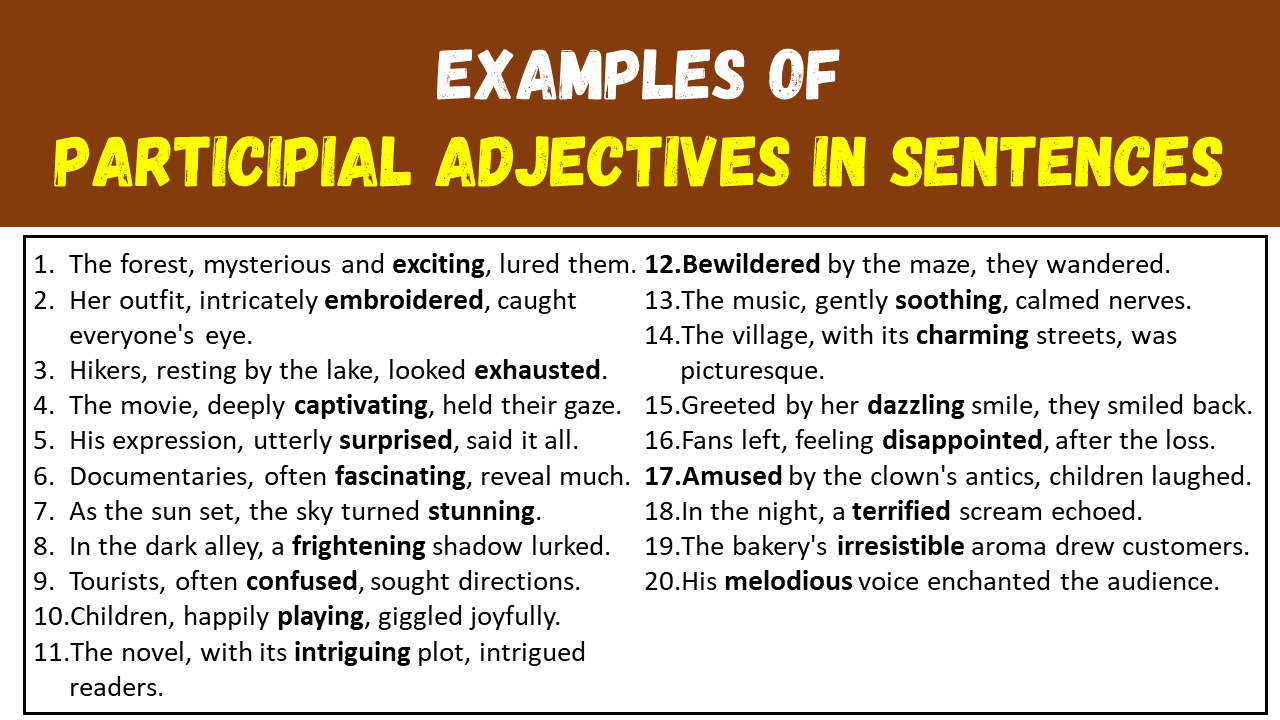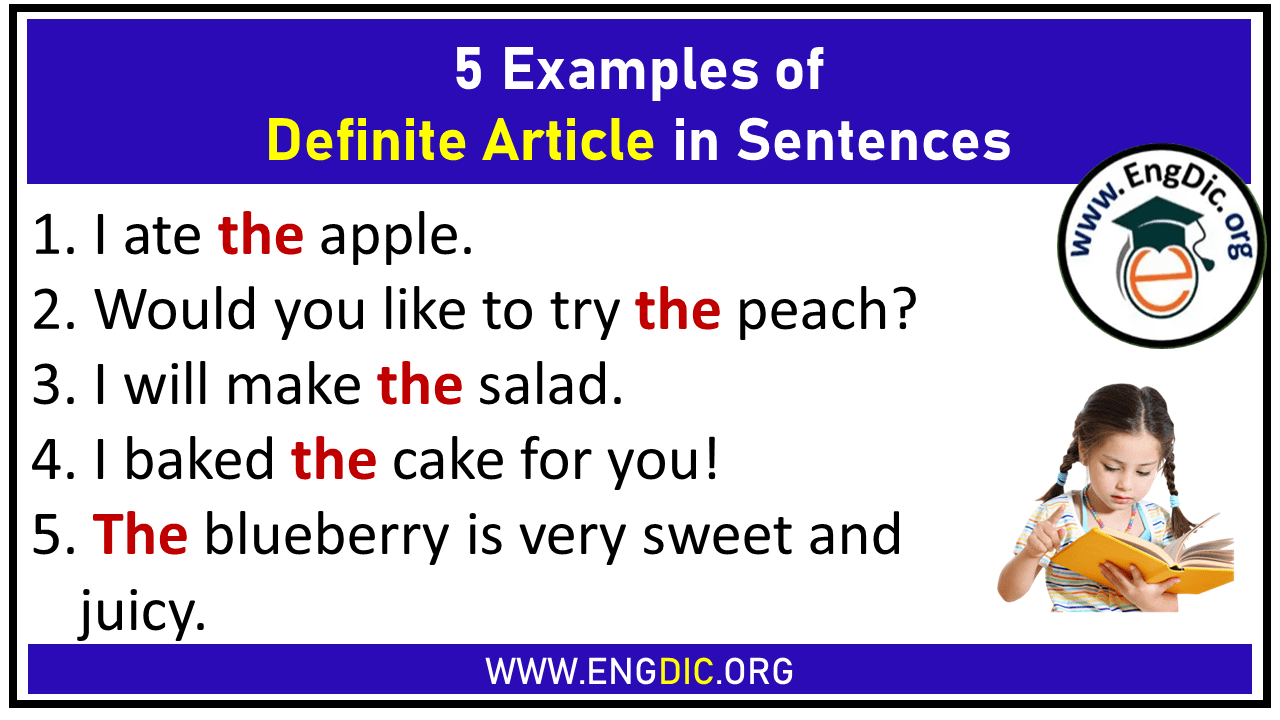The English language is full of interesting and complex grammar rules. One such rule involves participial adjectives. Participial adjectives are verb forms that are used as adjectives to modify nouns or pronouns. In this article, we will look at 20 examples of participial adjectives in sentences. This guide is sure to help you understand the use and importance of participial adjectives in the English language.
Participial Adjectives
Participial adjectives are a type of adjective formed from a verb and typically end in “-ed” or “-ing.” They are derived from the past participle or present participle of a verb, and they can be used to modify nouns or pronouns. Participial adjectives are sometimes also referred to as participial modifiers.
For example, in the sentence:
- The exhausted runner collapsed at the finish line.
The word “exhausted” is a participial adjective that describes the runner. In this case, “exhausted” is derived from the verb “exhaust,” and it modifies the noun “runner” by describing the runner’s state after running the race.
Another example would be the sentence:
- The students were interested in the challenging project.
In this case, “challenging” is a participial adjective that describes the project, which is something that presents a challenge to the students.
Types of Participial Adjectives
There are two types of participial adjectives:
1. Present Participle Adjectives:
Present participle adjectives are formed from the present participle of verbs and end with “-ing”. They are used to describe something that is currently happening or ongoing.
For example, in the sentence:
- The running water was soothing.
The word “running” is a present participle adjective that describes the state of the water as it flows.
2. Past Participle Adjectives:
Past participle adjectives are formed from the past participle of verbs and often end with “-ed”. They are used to describe something that has already happened or has been completed.
For example, in the sentence:
- The baked goods smelled delicious.
The word “baked” is a past participle adjective that describes the state of the goods after they have been baked.
Related: 100 Examples of Participial Adjectives
20 Examples of Participial Adjectives in Sentences
- The forest, mysterious and exciting, lured them.
- Her outfit, intricately embroidered, caught everyone’s eye.
- Hikers, resting by the lake, looked exhausted.
- The movie, deeply captivating, held their gaze.
- His expression, utterly surprised, said it all.
- Documentaries, often fascinating, reveal much.
- As the sun set, the sky turned stunning.
- In the dark alley, a frightening shadow lurked.
- Tourists, often confused, sought directions.
- Children, happily playing, giggled joyfully.
- The novel, with its intriguing plot, intrigued readers.
- Bewildered by the maze, they wandered.
- The music, gently soothing, calmed nerves.
- The village, with its charming streets, was picturesque.
- Greeted by her dazzling smile, they smiled back.
- Fans left, feeling disappointed, after the loss.
- Amused by the clown’s antics, children laughed.
- In the night, a terrified scream echoed.
- The bakery’s irresistible aroma drew customers.
- His melodious voice enchanted the audience.
Participle Adjectives Exercises
Here are a few exercises using participial adjectives:
- Identify the participial adjective in the following sentence:
“The exhausted hiker collapsed at the end of the trail.”
Answer: The participial adjective in this sentence is “exhausted,” which is derived from the past participle of the verb “exhaust.”
- Write a sentence using a present participle adjective:
Answer: The rustling leaves whispered in the breeze.
- Write a sentence using a past participle adjective:
Answer: The broken vase lay shattered on the floor.
- Rewrite the sentence using a participial adjective:
“The book that I read yesterday was very interesting.”
Answer: The interesting book that I read yesterday…
- Identify the tense and participial adjective in the following sentence:
“The teacher was impressed by the students’ well-written essays.”
Answer: The tense is past tense, and the participial adjective is “well-written,” which is derived from the past participle of the verb “write.”

Last updated on February 8th, 2024 at 09:13 am






